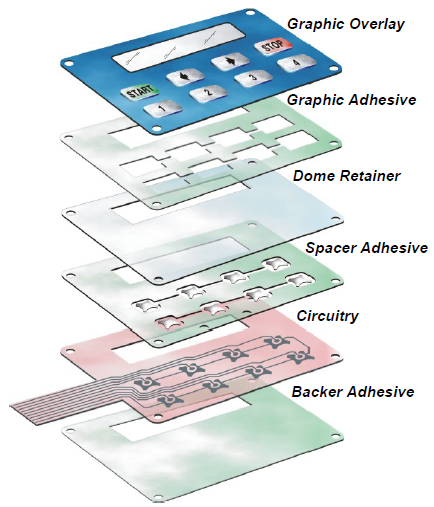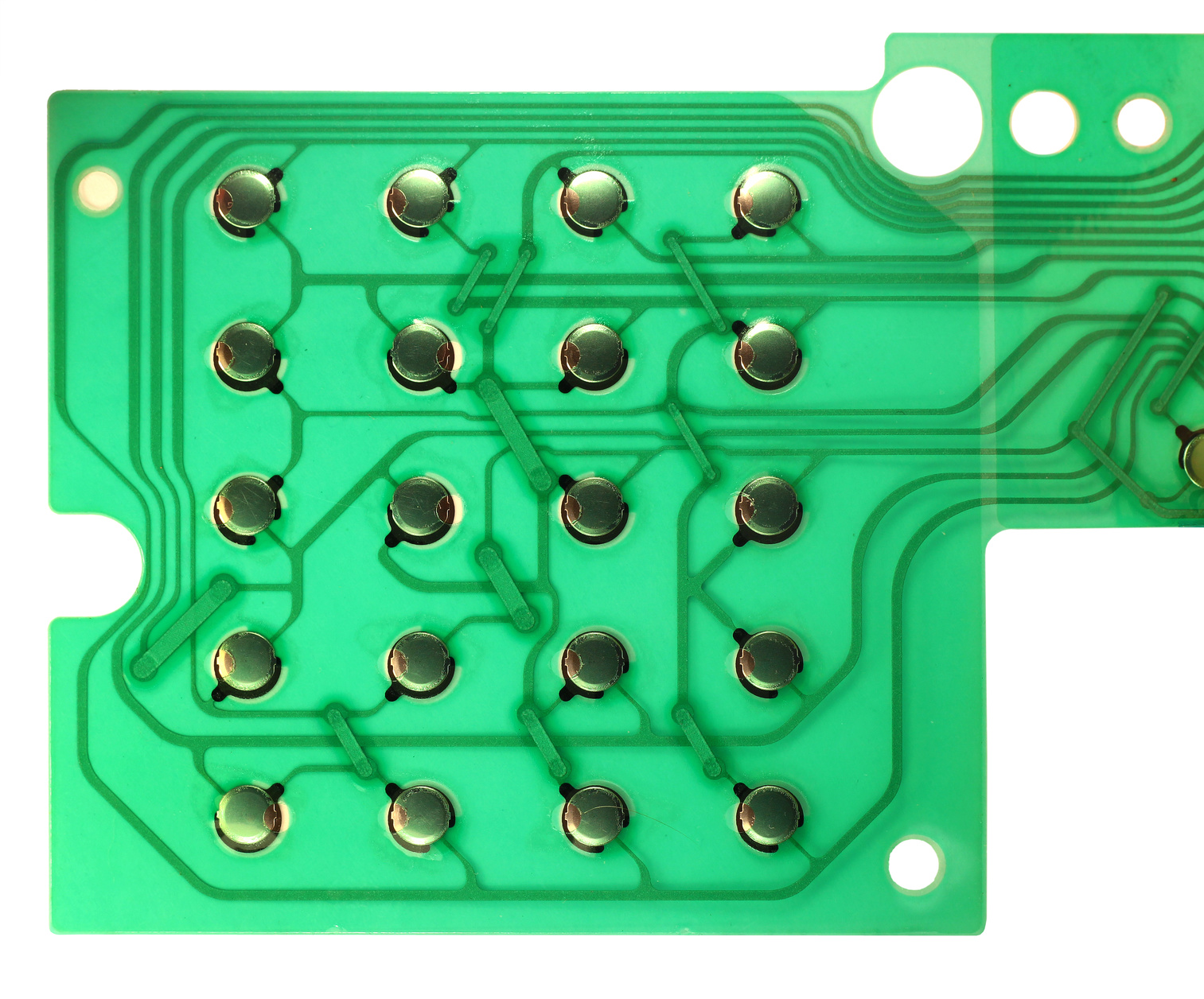Selecting the right membrane switch manufacturer can positively impact your product's quality.
Selecting the right membrane switch manufacturer can positively impact your product's quality.
Blog Article
Everything About Membrane Layer Change: Comprehending Its Style and Functionality
When you think of the control interfaces in modern-day devices, membrane layer buttons frequently enter your mind. These elements are greater than simply buttons; they blend layout and functionality flawlessly. Comprehending how they function and what makes them effective can change your viewpoint on everyday electronic devices. But, there are nuances to their style and efficiency that you may not recognize. Let's discover what collections membrane switches over aside from various other control systems.
What Are Membrane Layer Buttons?

Membrane layer buttons can additionally be tailored regarding form, size, and graphics, enabling makers to develop distinct interfaces tailored to specific items. Generally, membrane layer switches play a substantial function in improving individual experience across a large array of applications.
Exactly How Membrane Changes Job
When you press a secret on a membrane button, it activates a straightforward yet reliable system. The top layer, typically made of flexible material, pushes down onto a conductive layer under it. This activity bridges the void between conductive traces, finishing an electric circuit. As soon as the circuit shuts, it sends out a signal to the gadget's controller, which analyzes your input.
You'll see that the tactile feedback differs based on the button design, providing either a soft click or an extra pronounced response. As soon as you release the secret, the membrane layer returns to its original setting, resuming the circuit and quiting the signal. This process occurs virtually instantaneously, making certain a responsive user experience.
Membrane buttons are prominent as a result of their sturdiness and resistance to dust and dampness, making them perfect for different applications, from home home appliances to clinical tools. Understanding this procedure aids you value their prevalent usage.
Key Parts of Membrane Switches
Understanding the key parts of membrane buttons is basic for grasping their functionality and layout. The protective layer shields against environmental variables and put on, extending the button's life expectancy. By understanding these elements, you'll get insight right into exactly how membrane layer switches over run and their importance in various applications.
Materials Utilized in Membrane Switch Over Design
The performance and toughness of membrane layer changes heavily depend upon the products made use of in their style. You commonly encounter polyester and polycarbonate as primary substratums as a result of their outstanding stamina and versatility. These materials withstand scrapes and chemicals, making them optimal for demanding settings.
The conductive layers usually utilize silver or carbon, chosen for their integrity and conductivity. membrane switch manufacturer. Silver provides exceptional efficiency, while carbon is a cost-effective choice. For the overlay, you may think about a matte or glossy finish, relying on your visual requirements and customer experience
Make particular to select adhesives that endure environmental aspects like temperature level and moisture. Choosing the best products will certainly assure your membrane layer switch stands the test of time.
Style Factors To Consider for Membrane Layer Switches
While creating membrane layer buttons, it's crucial to consider various elements that affect their functionality and individual experience. Begin by focusing on Learn More the design and button size; make sure they're intuitive and simple to navigate. Take into consideration the tactile comments you intend to provide-- will individuals need a visible click or a softer touch? In addition, believe regarding the products you'll utilize, as they'll affect resilience and aesthetic appeals.
Confirm your style suits environmental aspects, like wetness or temperature variations, which might affect efficiency. By thoroughly thinking about these aspects, you'll create a membrane layer switch that boosts functionality and contentment.
Applications of Membrane Layer Switches
Membrane layer buttons are functional parts located in various applications, from commercial devices to customer electronics. You'll see their effect in devices that need resilient interfaces and in devices that take advantage of smooth designs. Recognizing these applications helps you appreciate the functionality and usefulness of membrane switches in day-to-day technology.
Industrial Equipment Use
When you're looking to enhance the capability of industrial devices, membrane switches supply a trustworthy service that integrates longevity with user-friendly style. These switches are excellent for harsh settings, providing resistance to dirt, moisture, and chemicals. Embrace membrane switches to simplify your procedures and enhance total performance.
Customer Electronics Combination
In the domain name of consumer electronic devices, membrane switches play a necessary role in improving user communication and gadget performance. You'll discover them in devices like microwaves, push-button controls, and pc gaming consoles, providing a smooth method to connect with technology. Their streamlined design permits easy integration right into various products, making controls user-friendly and easy to use. Continue With their ability to include graphics and backlighting, you can delight in a modern-day aesthetic that complements the gadget's general appearance. Membrane buttons also guarantee resilience and resistance to dirt and moisture, prolonging the lifespan of your electronic devices. By choosing membrane buttons, you improve not simply the performance yet likewise the design of your devices, making day-to-day interactions smooth and satisfying.
Advantages and Downsides of Membrane Layer Buttons
While membrane switches use a variety of benefits, they additionally include some disadvantages that you need to think about. One considerable advantage is their compact design, making them perfect for space-constrained applications. They're additionally affordable, giving a long lasting remedy with a low production expense. In addition, their smooth surface area is simple to tidy, enhancing hygiene in settings like health centers.

Membrane switches can have a shorter life expectancy contrasted to mechanical buttons, especially under heavy usage. They can likewise be much less responsive, which could affect customer responses throughout operation. Stabilizing these pros and disadvantages will aid you identify if membrane layer buttons are the ideal fit for your task.
Regularly Asked Concerns
How Much Time Do Membrane Changes Typically Last?
Membrane layer changes commonly last between 5 to 10 years, relying on usage and ecological conditions. You'll intend to examine variables like wear, direct exposure to moisture, and temperature level changes to evaluate their long life successfully.
Can Membrane Layer Switches Be Custom-made for Specific Designs?
Yes, you can customize membrane buttons to fit details designs (membrane switch manufacturer). You'll have the liberty to pick colors, shapes, and layouts that match your job's requirements, guaranteeing they blend seamlessly with your web general aesthetic
What Is the Cost Array for Membrane Change Production?
The cost variety for membrane layer button manufacturing usually falls in between $1 and $10 per system, depending upon variables like style intricacy, amount, and materials. You can obtain quotes from suppliers to discover the most effective option.

Are Membrane Changes Water Resistant or Resistant?
Membrane layer buttons can be developed to be waterproof or resistant, depending upon materials utilized and building and construction techniques. If you require them for damp atmospheres, guarantee you define those requirements throughout the layout procedure.
Just How Do Membrane Layer Changes Contrast to Standard Buttons?
Membrane layer buttons are generally thinner and more adaptable than standard buttons, supplying a streamlined design. They're often easier to clean up and incorporate, yet could not give the responsive comments you're used to with mechanical choices.
Verdict

Report this page